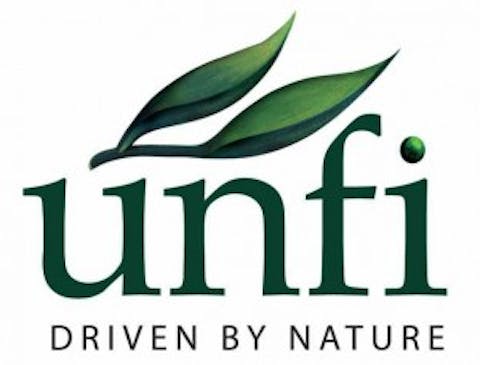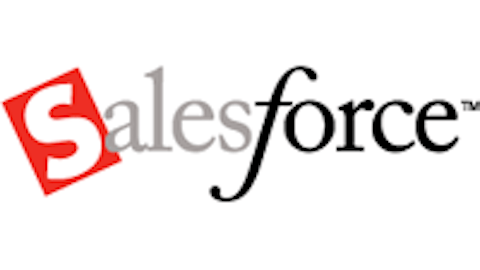Socially responsible investing was a big issue a decade ago. Today, the social niche that’s making news is environmentally responsible investing. Green Century is one of the leading fund families in the niche, so I took a look at the company’s highly rated Balanced Fund for some green stock ideas.

Investing in Green
Bloomberg recently published an article highlighting the emerging acceptance of environmentally friendly investing. This niche isn’t new, the Green Century family of funds has been successfully investing for the betterment of the environment for some time. Although it has two offerings, its Balanced Fund has been the best performer, earning four stars from Morningstar.
Aside from trying to pick stocks that management believes will increase in value, the fund also looks for companies that “demonstrate a commitment to protecting the environment by the products they make or services they provide, including renewable energy” and that “disclose their policies and performance on critical environmental sustainability criteria, such as plans to minimize risks to water, air and public health.” The fund also takes an activist role, pushing companies to be better environmental stewards.
The Top Two
The company’s two largest holdings at the end of the first quarter were Costco Wholesale Corporation (NASDAQ:COST) and Symantec Corporation (NASDAQ:SYMC). Costco Wholesale Corporation (NASDAQ:COST) is an interesting story because in 2010, Green Century helped push the company from being what it describes as an environment “laggard” to a “leader.”
Pushing Change
The fund family sponsored a resolution that it says sparked a dialog that led Costco Wholesale Corporation (NASDAQ:COST) to commit to stop selling a dozen seafood species identified as “at great risk.” For those with the environment in mind, that’s pretty compelling. However, it’s much more exciting to look at the company’s financial success.
For example, revenues have gone up in all but one year (2009) over the past decade. The top line is now more than double what it was ten years ago. The same is true of earnings, which increased from around $1.50 a share in 2003 to nearly $3.90 last year. The dividend has been regularly increased, too.
A Turnaround
Symantec Corporation (NASDAQ:SYMC), meanwhile, is an IT company known for such products as Norton Antivirus software. So, it probably isn’t too big an environmental threat. However, it is an interesting turnaround play. The company went on an acquisition binge only to wind up with a case of indigestion. The board recently brought in a new CEO who has a solid history of improving corporate performance from stints at General Electric Company (NYSE:GE) and Intuit.
The shares have headed higher on this management shift, but still trade relatively cheaply compared to their historical P/E multiples. Adding to the allure, in addition to bringing in a seasoned manager, the company has also initiated a plan to return value to its shareholders by way of stock buybacks and dividend payments.
The top line has increased in each of the last two years and earnings are solidly in the black. Fiscal 2012 earnings were over a $1.50 a share and more than double 2011’s tally. With a solid position in the hot computer protection industry, the company stands to benefit. If the new CEO can get profit margins from the mid-teens back into the mid-20s, the bottom line could really take off.
Two That Make Sense
Two other names that stood out from the portfolio as completely logical were United Natural Foods, Inc. (NASDAQ:UNFI) and Whole Foods Market, Inc. (NASDAQ:WFM). These two companies are the big players in the natural food grocery industry. United Natural Foods, Inc. (NASDAQ:UNFI) is the largest distributor of such foods and Whole Foods Market, Inc. (NASDAQ:WFM) is the largest retailer.
The Grocer
As traditional grocery stores have struggled from intense competition from nationwide discount chains like Wal-Mart Stores, Inc. (NYSE:WMT), Whole Foods Market, Inc. (NASDAQ:WFM) has managed to continue expanding despite prices at the high end of the industry. Its healthy image, focus on the shopping experience, and an upscale client base are largely the reasons.
The company’s top line grew right through the 2007 to 2009 recession. Although earnings have been more volatile, the company is solidly profitable (2012 earnings were over $2.50 per share and haven’t dipped below $0.80 in a decade). This is a unique bright spot in the grocery industry and, no surprise, an environmental good guy, too.
The Supplier
United Natural Foods, Inc. (NASDAQ:UNFI), meanwhile, boasts similarly impressive top line results, but has been more consistent on the bottom line. The only earnings dip was a four cent shortfall in 2008. Earnings were around $0.50 a share in 2003 and were over $1.80 in 2012.
United Natural Foods, Inc. (NASDAQ:UNFI) shares are off from recent highs, which could make now a decent time to take a position for growth oriented investors. Whole Foods Market, Inc. (NASDAQ:WFM), however, is again reaching new highs, so it might be more appropriate for momentum investors and those with an aggressive growth bias.
It’s Easy Being Green
These four stocks show that it’s easier being a green investor than it might at first appear. Symantec is a turnaround play, but Costco Wholesale Corporation (NASDAQ:COST), Whole Foods Market, Inc. (NASDAQ:WFM), and United Natural Foods, Inc. (NASDAQ:UNFI) shares have all been doing quite well. They are most appropriate for momentum and growth investors.
The article Environmental Investing: Part 1 originally appeared on Fool.com and is written by Reuben Brewer.
Reuben Brewer has no position in any stocks mentioned. The Motley Fool recommends Costco Wholesale and Whole Foods Market. The Motley Fool owns shares of Costco Wholesale, General Electric Company, and Whole Foods Market. Reuben is a member of The Motley Fool Blog Network — entries represent the personal opinion of the blogger and are not formally edited.
Copyright © 1995 – 2013 The Motley Fool, LLC. All rights reserved. The Motley Fool has a disclosure policy.

